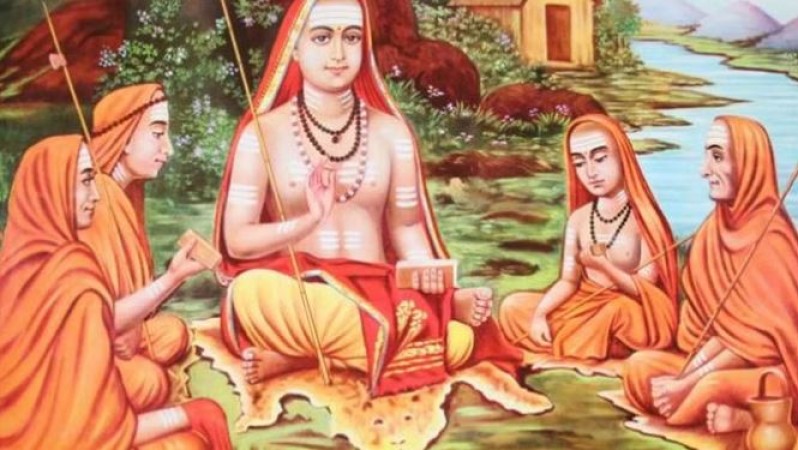
New Delhi: The cultural history of Bharat (India) is a tapestry woven with the lives of remarkable souls. At the heart of Hindu civilization lies a spiritual renaissance driven by intellectual and creative prowess. Adi Shankaracharya, born in Kerala around 788-820 A.D., emerged as a beacon during a time when Bharat sought a resurgence of its national culture and spiritual essence.
Raised by his mother Aryamba after losing his father at a young age, Adi Shankaracharya’s journey began with his Upanayana ceremony at five. Sent to a Gurukula by the river Purna, he immersed himself in studying Vedas and various subjects, with a profound interest in Vedanta. His dedication to Hinduism led to him being known as "Adi" (meaning original).
Adi Shankaracharya played a pivotal role in eliminating misconceptions from Vedic culture through his Advaita Vedanta philosophy. This philosophy revived the essence of Sanatana Dharma (eternal religion) and refueled the flame of knowledge enshrined in the Upanishads. Through his tireless efforts, he championed the oneness of Jnana (knowledge) and Bhakti (devotion), revitalizing Hindu Dharma.
His philosophy encapsulated the idea that the Universal Spirit is the only reality, and everything else is an illusion. He proclaimed the unity of individual self (Atman) and Universal Spirit (Brahman), advocating liberation from the cycle of birth and death.
Adi Shankaracharya’s contributions extended to his commentaries on Upanishads, Bhagavad-Gita, Brahmasutra, and Mandukhyakarika of Gaudapada. His timeless wisdom has shaped modern Hindu thought, fostering unity, knowledge, and devotion among the masses.
He rekindled the Hindu culture through his compositions of stotras (hymns) praising gods and goddesses across various traditions. These stotras celebrated devotion and played a crucial role in shifting the focus from rituals to bhakti.
Adi Shankaracharya's legacy thrives through his teachings and the establishment of four Pithams (centers) across Bharat. These Pithams propagated Advaita Vedanta, ensuring the preservation and dissemination of his wisdom. He strategically located these Pithams on the nation's boundaries to symbolize the unity of Bharat.
His philosophy continues to inspire generations of scholars, philosophers, and spiritual seekers worldwide. Adi Shankaracharya’s profound impact on Hinduism and his efforts to unite Bharat’s diverse cultural threads highlight his enduring significance in shaping the country's spiritual landscape.